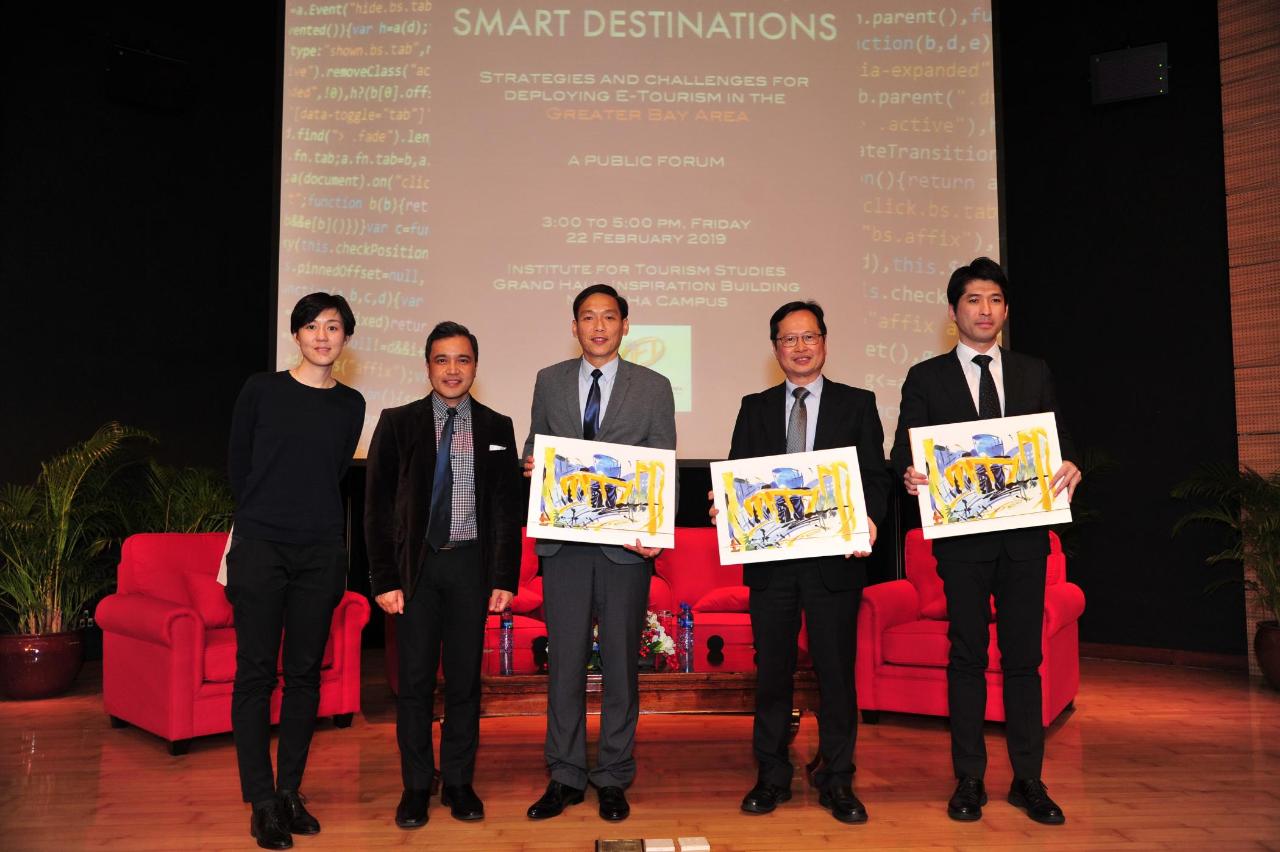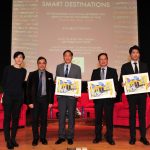 Professor Don Dioko, Director of IFT Tourism Research Centre, presented souvenirs to speakers
Professor Don Dioko, Director of IFT Tourism Research Centre, presented souvenirs to speakers
On 22 February, Macao’s Institute for Tourism Studies’ Tourism Research Centre (ITRC) held a Public Forum on "SMART TOURISM, SMART DESTINATIONS". The forum was organised by IFT with the aim of discussing developments in and challenges to the deployment ofsmart and E-tourism technologies for Macao and the Greater Bay Area. The Forum is part of IFT’s continuing engagement with and advancing of its various Greater Bay Area initiatives in the areas of tourism training, education, and research.
The Forum brought together a rare combination of speakers from the key sectors of tourism governance and management (featuring Mr. Ricky Hoi, Deputy Director of the Macao Government Tourism Office), academia (Prof. Rob Law of the Hong Kong Polytechnic University’s School of Hotel and Tourism Management), and industry (Dr. Jason Ni, Executive Director of Research, Planning and Strategy of Wynn Macau). The speakers spoke and discussed the latest updates on developments and knowledge about smart and E-tourism technologies as practiced by other successful tourism destinations. With participation from members of the general public during the Q&A, the speakers also addressed issues of making Macao and the Greater Bay Area into “smart tourism destination.” Most importantly, the Forum highlighted the immense opportunities and challenges for tourism, the hospitality and travel industries, and communities of the Greater Bay Area, brought about by advances in smart city technologies.
About 80 participants attended the event, which included members of the general public, representatives from higher educational institutions in Macao and the Greater Bay Area, government officials and industry executives, among others.


